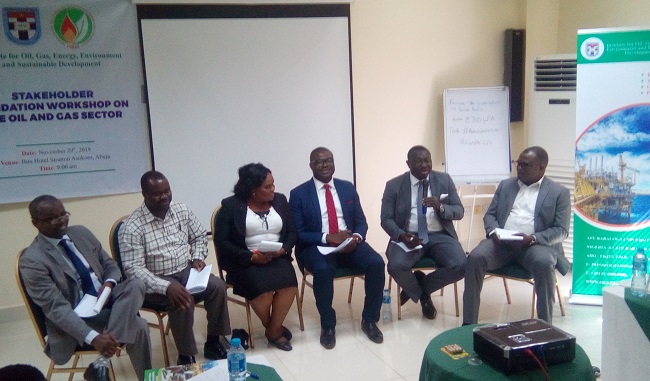Since its issuance in 1991 by the Department of Petroleum Resources (DPR) in the Ministry of Petroleum Resources, the Environmental Guidelines and Standards for the Petroleum Industry in Nigeria (EGASPIN) has remained an imperative document in the Nigerian oil and gas sector.

EGASPIN outlines environmental and safety standards that must be complied with by oil operators in the country to prevent, minimise and control pollution from the various aspects of petroleum operations. In line with the DPR’s resolve periodically update the publication “as new knowledge becomes available”, EGASPIN was revised and updated in 2002.
Sixteen years later in 2018, the Institute for Oil, Gas, Energy, Environment and Sustainable Development (OGEES Institute) of the Afe Babalola University, Ado Ekiti in Ekiti State, appears to have revisited the much-vaunted document, in an apparent bid to determine its alignment with international best practices.
OGEES Institute, which has been undertaking a comprehensive review of the regulatory framework for environmental protection in the Nigerian oil and gas sector, embarked on a study in this regard. The findings by the institute’s research team on the project were the subject of discussion by a gathering of stakeholders at a validation workshop that held in Abuja on Thursday, November 29, 2018.
“Given the significance of EGASPIN to enhancing environmental sustainability and good governance in the Nigerian oil sector, it is pertinent to review and assess various aspects of the document in the light of the current knowledge and advancements in international best practices, laws, governance methodologies and pollution control technologies,” said Prof. Damilola Olawuyi, Director, OGEES Institute.
He listed the objectives of the study to include:
- Reviewing and evaluating EGASPIN to determine its alignment with international best practice on environmental protection, especially during approval, operations and decommissioning phases of the oil and gas sector value chain;
- Identifying existing gaps; and,
- Providing recommendations and improvements that would increase its effectiveness.
Authored by Prof. Olawuyi and Dr Zibima Tubodenyefa (of the Niger Delta University), the study, among others, compared EGASPIN with the environmental regulation and processes in the comparator countries with respect to stringency, transparency and compliance.
International best practice on stringency, transparency and compliance, it was gathered, were drawn looking at three stages in the life cycle of an oil and gas project: approval of the project, construction and operations, and closure or decommissioning.
“This report and its recommendations aim to help stakeholders in the Nigerian oil and gas industry, especially the DPR, to improve EGASPIN’s contribution to achieving efficient, safe, orderly and environmentally responsible development of Nigeria’s oil and gas resources,” stated Dr. Tubodenyefa.
